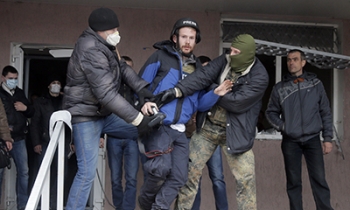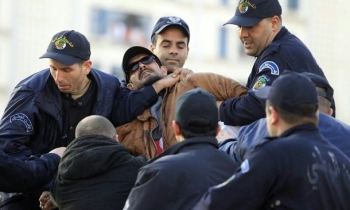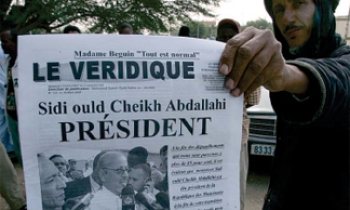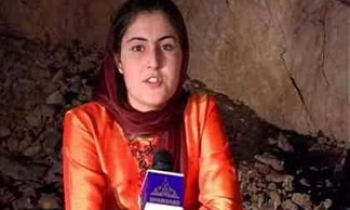Armenian Parliament has decided against adopting two draft laws that would have banned future broadcasts of foreign media, specifically Radio Free Europe/ Radio Liberty (RFE/RL). This step, welcomed by free speech organisations, is said to be a step towards safeguarding media freedom in a democratic setup.

The two proposed laws were set to effectively ban foreign broadcasts on Armenian public television and radio and heavily tax their retransmission on private stations.
The first draft law was an amendment to the law "On Television and Radio", which prohibited retransmission of foreign broadcasts on Armenian public television and radio frequencies. The second was an amendment to the law "On State Taxes", establishing heavy fees for private companies that aired foreign broadcasts.
Both draft laws passed a first reading on June 29 in the National Assembly of Armenia. However, they failed to pass in the second and final reading on July 3 because opposition, independent, and even some pro-government lawmakers blocked a quorum by boycotting two separate votes.
After the voting, an RFE/RL report quoted Victor Dalakian an independent member of parliament and one of the more outspoken critics of the legislation introduced by the government, "The minority proved that quality is more important than quantity, and this would be a lesson for the parliamentary majority, that it should respect one of the most important rights: liberty."
The votes came one day after the US State Department weighed in. On July 2, following a question during a press briefing, the department issued a statement in which it suggested the proposed legislation was unlikely to further Armenia's "stated desire for continued democratisation, particularly in the wake of the May parliamentary elections that marked a step forward even as they reflected the need for further improvements toward democratic standards."
Speaker of Assembly Tigran Torosian and other officials had consistently argued that the legislation would actually not have affected RFE/RL broadcasts. But that position, given the legislation's wording, left observers both inside and outside the country puzzled.
The Organisation for Security and Cooperation in Europe (OSCE) had said the proposals, amounted to a "ban on RFE/RL" and could have made Armenia's March 2008 presidential elections less free and fair.
Human Rights Watch had called the legislative package a potential blow to media freedom in general. Holly Cartner, Europe and Central Asia director at Human Rights Watch, said before the second reading, "These new laws clearly restrict access to a crucial independent news source for many Armenians and deal a serious blow to RFE/RL and to freedom of the media in general."
RFE/RL is one of the only independent broadcast media outlets remaining in Armenia. Although there is a vibrant print media, the government maintains close control over the much more accessible broadcast media.
RFE/RL is also occasionally broadcast via some private radio stations in the country's capital, Yerevan, and surrounding regions, but under the now defeated bills, private Armenian broadcasters had to pay more than US$200 in taxes each time they retransmitted a programme produced by a foreign media organisation. This fee is 70 times more than broadcasters must pay for a locally made programme.
A demonstration was carried out in Yerevan on July 2 against the proposed laws, according to RFE/RL. Tom Mittnacht, a spokesman for the U.S. Embassy in Yerevan, told RFE/RL after the vote "We are pleased that there will now be more time for civil society to engage with Armenian lawmakers on this issue. We appreciate the substantive and active dialogue we have had with the speaker of the assembly. We are happy that Radio Liberty will be able to continue broadcasting."
The two bills were also said to be incompatible with Armenia's obligations under the European Convention on Human Rights (ECHR). Article 10 of the ECHR guarantees the right "to receive and impart information and ideas without interference by public authority and regardless of frontiers."
The restrictions placed on the rights of expression and imparting of information by the bills did not meet these requirements. The European Court of Human Rights repeatedly maintained that freedom of expression is one of the essential foundations of a democratic society and that the media plays a pre-eminent role in a state governed by the rule of law. The court insisted that any efforts by a government to restrict freedom of expression be strictly scrutinised and the reason convincingly established.
This move was not the first effort by the Armenian government to limit independent media. The independent television station A1+ lost its broadcasting license in 2002, after regularly airing criticism of the government, and lost 12 subsequent tenders for television and radio frequencies. In June 2006, A1+, which produced a weekly newspaper and maintains a website, was forced to vacate its offices, after losing a court case in 2005 challenging a notice of eviction.
In Armenia, broadcasting is by far the most important source of information and entertainment. The difficulty of distributing newspapers, especially to the remote regions of the country, makes the broadcast media effectively the only source of information for the majority of the population. As a result of this central role and its growing profitability, broadcasting media has crucial political and economic power. Thus, the independence and the diversity of broadcast media are decisive for the freedom of expression in the country.









